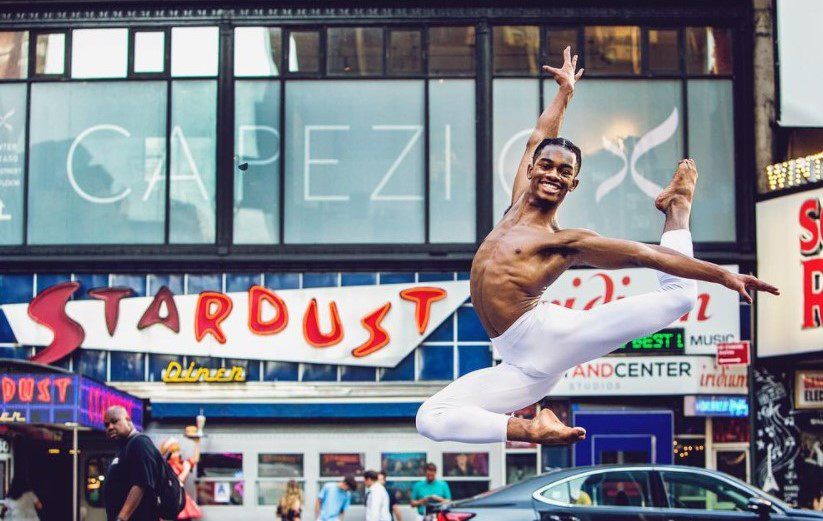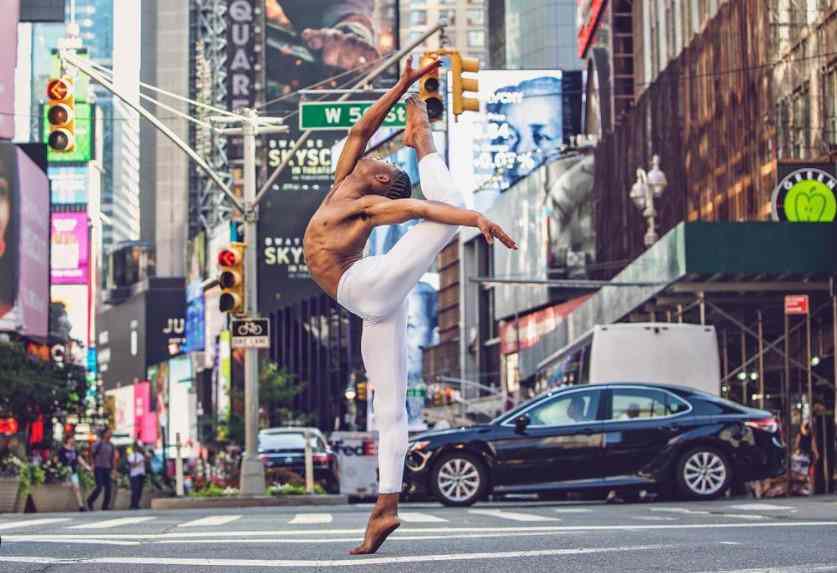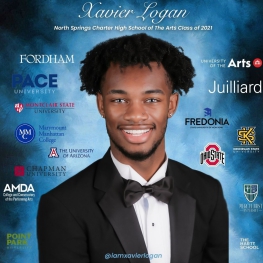“In order for me to be dancing, I always had to have all As… A lot of people tell you that you can only focus on one thing, and I want to rip that narrative up and throw it away,“ says Xavier Logan, one of 24 dancers worldwide accepted to Juilliard’s dance program with a <5% acceptance rate and the first in his high school’s history. The only Black boy in the Top 30 of his class, a recipient of $1.3 million in scholarships, and the son of a basketball player mom and football player dad, Xavier shares this week:
- How he knew he found his passion and the signs that someone has found their passion
- What the nationally-recognized dancer did to get straight A’s despite living an hour from school
- His best advice to students: Don’t wait to get recognized by others and do this instead

Help Xavier get to Juilliard by contributing to his GoFundMe.
Follow him on YouTube and Instagram.
Xavier, you’re a star dancer and YouTuber who just got into Juilliard with a tuition scholarship. For those who don’t know you, what are you an expert in?
I’m an expert in anything I’ve tried to do: academics, school-related things, dancing, and anything regarding the performing arts like singing and acting. Also communication: I’m a very sociable person, so I like talking to different people.
What contributes to your ability to be an expert in everything you do?
I always make sure that if I’m doing something, I’m super passionate about it so I can be the best in what I do. For dance and academics, I get really influenced by competition. I feel like having someone that challenges my mind by way of thinking is very healthy and causes me to think and push myself differently than I would if I didn’t have any competition.
Many of our readers want to help their teens find passion, so I’m glad you mentioned it. What are clues that you’ve found your passion?
It’s a funny story. There were clues, but it took me a long time to get there. When I was younger, I was put into every sport possible: football, basketball, soccer, tennis, volleyball, everything. And then, after sports, I was put into karate. From karate, I learned how to do a split. The next thing I knew I was just popping into splits and dancing around the house to music. So I think those were the clues that helped my parents decide to put me into a dance summer camp. And from there, the rest is history.

Congratulations on being only one of 24 applicants worldwide accepted to Juilliard’s dance program next year. What do you think got you in?
I still question it to this day. I think through the screen — because most of our auditions were through screen; we couldn’t do them in person — my passion reads a lot when I’m dancing, because every time I’m dancing, you can see some type of emotion on my face regardless of what I’m doing, whether it’s a little combo or if we’re just training and I’m not on stage.
You’re not only a dancer, but also a model, actor, singer, YouTuber, and social media influencer. You’re also a top student at school. How do you balance everything?
I know that my upbringing had a lot to do with my current decisions. In order for me to be dancing, I always had to have all As, so that was like, “Oh, I really like dancing, so let me go ahead and make sure that I’m really good on my academics.” Once all As was the standard, competition came in. It was like, “Oh, wait, this person is doing this; let me see if I can do this. Let me see if I can add on to this.” So I would say competition helped, scheduling helped, upbringing and knowing that I’m the first in a lot of my family’s history to be doing these things helped.
Tell me more about how being the first in your family helps you maintain balance in your life.
 Reputation is a big thing, I want to leave a legacy that others can follow, because I know that for me growing up, I couldn’t look at someone who looks like me and was balancing academics and dance. I knew people that were really passionate about dance but not about academics, and also trying to be an influencer and active on social media and have all these different aspirations. Also, growing up, a lot of people tell you that you can only focus on one thing, and I want to rip that narrative up and throw it away.
Reputation is a big thing, I want to leave a legacy that others can follow, because I know that for me growing up, I couldn’t look at someone who looks like me and was balancing academics and dance. I knew people that were really passionate about dance but not about academics, and also trying to be an influencer and active on social media and have all these different aspirations. Also, growing up, a lot of people tell you that you can only focus on one thing, and I want to rip that narrative up and throw it away.
Getting all A’s is hard even for students not involved in extracurriculars. How did you manage to get straight A’s?
I had to wake up at five in the morning to catch a bus to drive an hour all the way up there to get to school. I was never in a regular class; I was always in an honors or AP class — but also managing the homework. And I also danced at school and then drove an hour back home and tried to do my work on the bus or in the car on the way back home. As soon as I got on my side of town, I had to go straight to dance. There would be a lot of days where I wouldn’t be getting out of dance until 10, 11 or 12 at night and tried to eat and then take a shower and still do homework, and I had to actually go to sleep because I had to wake up in four hours.
What inspired you during these times when you were working until midnight, knowing you had to be up again in four hours?
There was this one video that I always remember. This guy is saying if you’re not fulfilling your passion, your drive, you’re basically committing mental suicide. He’s describing how a lot of people are just walking around committing mental suicide and they don’t know, because they’re just going through life day by day. They’re not achieving the dreams that they always thought of because they think that’s just how life is. I am a firm believer that you make your own decisions and you make how you want your life to be.
Was there ever a time you considered quitting? What got you through it?
If you just go about just doing things and you never really question, were you ever really passionate about it in the first place if you don’t question your decisions? There were plenty of times where I’ve questioned, “Am I doing the right thing? Am I doing what I’ve always said I wanted to do? Is it really worth it, based on what other people are saying?”
But I always go back to the younger version of myself. I have this box in my closet of different letters over the years that I’ve written to the future version of me, with different goals I wanted to achieve. Every couple of years or couple of months, I go back to the box to read through the things and go through and really listen and watch the things that I’ve accomplished, and it helps me a lot to with the questions that I have. Also, my village helps me a lot. A lot of my friends are very passionate like me; they don’t want to be on a straight and narrow path.
I’m glad you’ve found friends to serve as your accountability partners, tribe members, or cheerleaders. Many students forget the value of their peers. On that note, how did your family influence your path?
Well, I’ve always not really followed the path of what my family has been doing. My mother was a basketball player, and my father was a football player. So for them to have a dancer as a son, they’re like, “What is this?” My family has done a great job of accepting things and learning to change the initial narrative or mindset that they had because of different things that I’m introduced to and things that I introduced to them.
